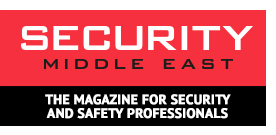
17 Nov The role of surveillance in retail
Sajjad Arshad, Business Development Director, AxxonSoft Middle East, looks at the growing role of video surveillance in supporting retail security operations.
In an ever-evolving retail landscape, the significance of security measures cannot be overstated. One of the most critical components of modern retail security is video surveillance. Over the years, video surveillance has become an indispensable tool for retailers, helping to combat theft, enhance safety, optimise operations, and improve customer experience. Video surveillance has already revolutionised the way retailers safeguard their businesses and patrons and has an ever-expanding role in the retail industry.
The early days of retail security primarily relied on manned security personnel and rudimentary closed-circuit television (CCTV) systems. However, with the rapid advancement in technology, video surveillance has undergone a remarkable transformation. Today, stateof- the-art video surveillance systems boast high-resolution cameras, intelligent analytics, facial recognition, and even artificial intelligence, making them highly effective tools in thwarting threats and optimising retail operations.
There are a number of ways it can do this:
1. The Deterrent Effect
One of the most apparent benefits of video surveillance in retail is its powerful deterrent effect. The presence of visible cameras serves as a warning to potential wrongdoers, discouraging theft and other malicious activities. Knowing that their actions are being recorded, significantly reduces the likelihood of shoplifting, employee theft, and other illicit behaviours. As a result, retailers can create a safer environment for both their merchandise and customers.
2. Loss Prevention and Inventory Management
Shoplifting and internal theft can cause significant financial losses for retailers. Video surveillance plays a crucial role in identifying and preventing such incidents. Advanced video analytics can detect suspicious behaviour, prompting security personnel to intervene before a theft occurs.
3. Enhancing Customer experience and safety
Apart from preventing theft, video surveillance contributes to enhancing the overall customer experience. Retailers can analyse foot traffic patterns and customer behaviour within the store to identify opportunities for improvement. Understanding customer flow helps optimise store layouts, product placements, and staff allocation, resulting in a more pleasant and efficient shopping experience. Furthermore, video surveillance contributes to customer safety. In case of accidents or emergencies, security personnel can respond quickly, aided by real-time monitoring and footage analysis. Additionally, surveillance systems with integrated fire and smoke detection capabilities add an extra layer of safety, protecting customers and staff from potential hazards.
4. Operational Efficiency
By analysing customer behaviour and sales trends, retailers can fine-tune their marketing strategies, promotional activities, and product offerings to better align with customer preferences and demands. These insights enable retailers to make data-driven decisions that boost overall operational efficiency and drive business growth.
AI and predictive analytics take a proactive approach
The integration of artificial intelligence (AI) in video surveillance has revolutionised the industry. AI-powered cameras can automatically identify and track suspicious activities, such as loitering around entrance/exit areas, high-value product sections, checkout counters, restrooms, etc. It can also spot unusual behaviour such as aggressive behaviour, shoplifting indicators, physical altercations, etc. and even recognise known offenders through facial recognition technology. This proactive approach enables security personnel to intervene before incidents escalate, further deterring potential threats. Armed with such insights, retailers can proactively plan and implement measures to mitigate risks, optimise resources, and enhance overall security preparedness.

